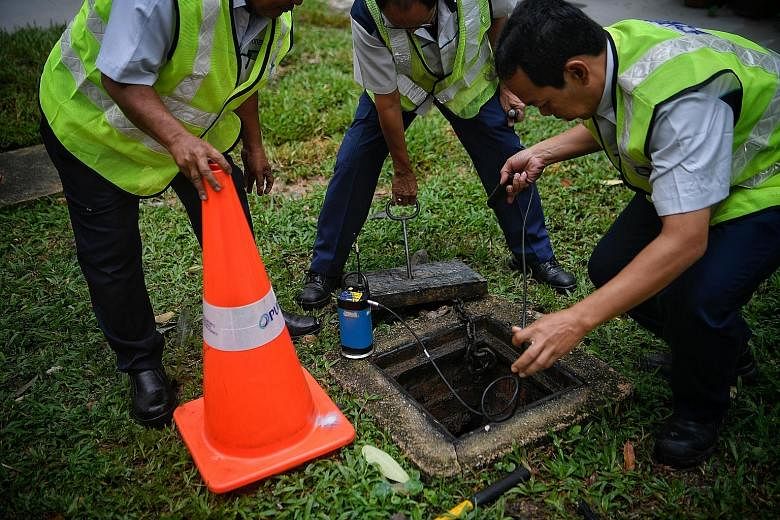Sonic system for birds not suitable
Using a sonic system to repel birds is not as effective in HDB estates, said Senior Minister of State for National Development Koh Poh Koon in Parliament yesterday.
Mr Gan Thiam Poh (Ang Mo Kio GRC) had asked the Agri-Food and Veterinary Authority (AVA) to consider such a system, which emits ultrasonic sound waves to disorientate a bird and is used by airports.
But Mr Koh said its effects are usually temporary, and birds have also been known to acclimatise to the sound. Such systems can also be quite loud, "which reduces their suitability for deployment in residential areas".
He added that the AVA is working with town councils to mitigate the issue, such as using bird deterrent gels and fogging trees to discourage birds from roosting near homes.
But these trials would require some time before they can be deemed effective or justify the cost, he said. He also emphasised the importance of educating people to prevent "uncivil behaviour", such as improper disposal of food waste at hawker centres or at home.
No increase in water pipe leaks
There has been no discernible increase in the number of water pipe leaks that occur here each year, said Senior Minister of State for the Environment and Water Resources Amy Khor.
The number of leaks per 100km of pipes has hovered at six a year over the past seven years, or about 330 leaks each year, she said.
This is down from 2003 to 2004, when there was an average of around 10 leaks per 100km, translating to around 550 leaks a year.
She added that Singapore's rate of pipe leaks is among the lowest in the world.
The German cities of Berlin and Munich experience seven leaks for every 100km of pipes each year, while Sydney experiences 28 for every 100km.
Dr Khor also said it cost around $9 million to develop the entire sensor network system to monitor water supply, including the 320 sensor stations and data analytics software.
Gains outweigh cost of going green
Certified energy-efficient buildings cost up to 5 per cent more than regular buildings, but the additional costs are more than offset by savings from reduced energy and water consumption, said Second Minister for National Development Desmond Lee.
He added that these costs can be recuperated within three to six years, "well within the typical useful life of the building asset".
Beyond the obvious cost benefits, having green buildings helps ensure a healthier lifestyle, he said. For that reason, the Government must continue to encourage developers to build Green Mark Platinum buildings.

